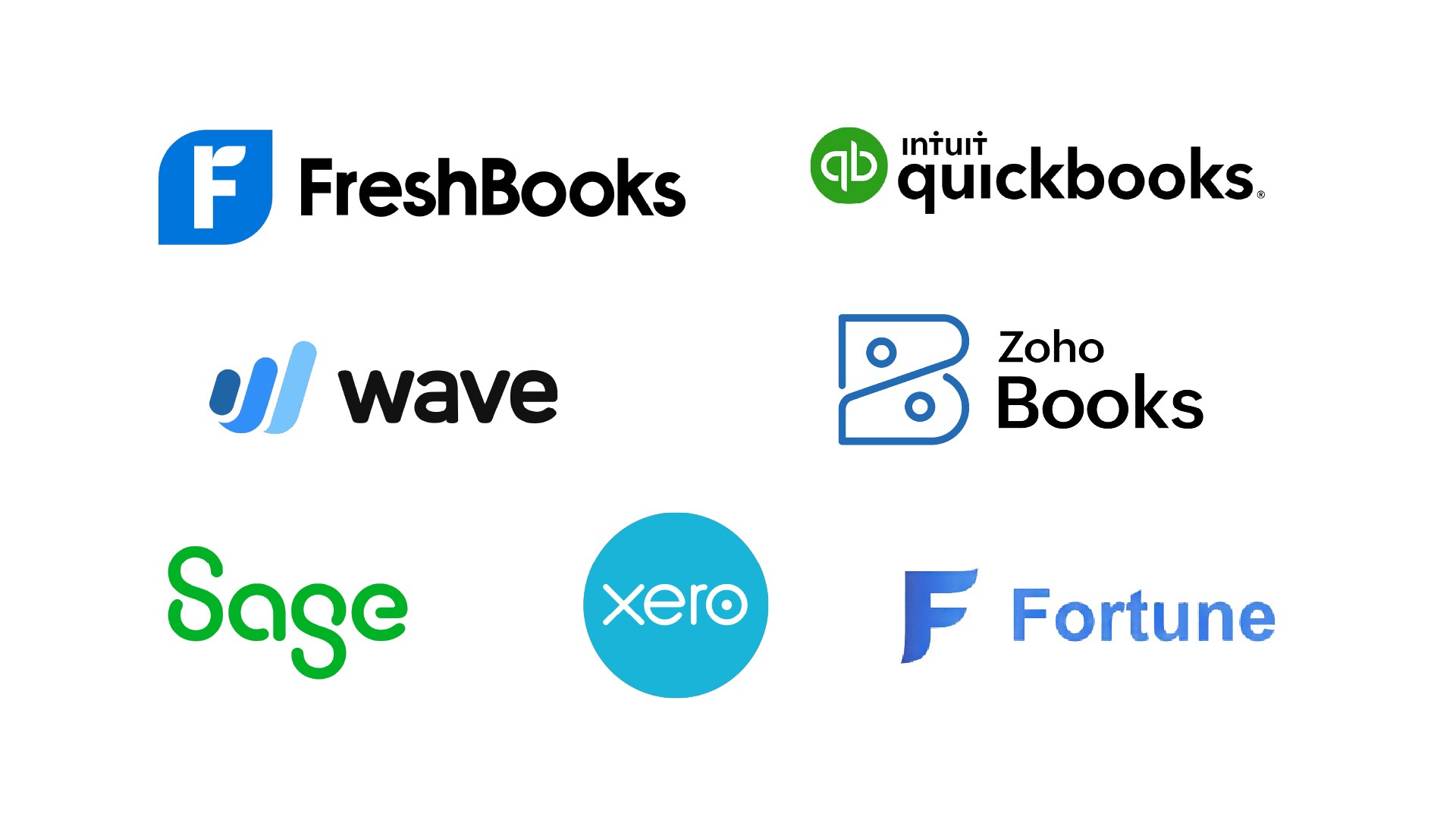
Back to Blog
Share Post:

AI
Jan 30, 2024
The Transition From Manual to AI Accounting Systems
What Is Accounting?
Accounting is a systematic process of recording, summarizing, analyzing, and reporting financial transactions of a business or organization. It provides essential insights into financial health and performance, enabling informed decision-making.
Types of Accounting
Here are the most common types of accounting:
Financial Accounting
Financial accounting focuses on the external reporting of financial information to stakeholders, including investors, creditors, and regulatory bodies.
Managerial Accounting
Managerial accounting, or cost, managerial, corporate, or private accounting, concentrates on internal management needs. It involves budgeting, cost analysis, performance evaluation, and decision support to help organizations achieve their goals efficiently.
Tax Accounting
Tax accounting revolves around compliance with tax regulations. It ensures accurate and timely preparation of tax returns, minimizing tax liabilities while adhering to tax laws and regulations.
Auditing
Auditing involves examining and verifying financial information to ensure accuracy and compliance. External auditors provide independent assessments, instilling confidence in financial reports for stakeholders.
In summary, accounting plays a crucial role in facilitating transparency, accountability, and informed decision-making within organizations. Different types of accounting serve unique purposes, collectively contributing to the overall financial management and sustainability of businesses.
What is Artificial Intelligence?
Artificial Intelligence (AI) refers to machines, particularly computer systems, mimicking human intelligence processes.
Key AI applications include expert systems, natural language processing, speech recognition, and machine vision. AI's functionality often involves machine learning, requiring specialized hardware and software. While various programming languages like Python, R, Java, C++, and Julia are used, no single language is exclusively linked to AI.
AI systems analyze vast labeled datasets, identifying correlations and patterns to predict future states. Generative AI techniques rapidly advance, creating realistic text, images, music, and more. Moreover, AI programming emphasizes learning from data, reasoning for optimal outcomes, continual self-correction, and creative generation through neural networks and other techniques.
Impact of AI in Accounting
The impact of AI in accounting is transformative, leading the way in an era of efficiency, accuracy, and strategic financial management.
Automation in Data Entry
Artificial Intelligence (AI) has revolutionized the accounting landscape, particularly in data entry tasks. Implementing AI-powered tools has significantly reduced the manual effort required for data input, minimizing the risk of errors and improving overall efficiency.
Enhanced Data Accuracy
AI algorithms excel in processing large volumes of financial data with unparalleled accuracy. By automating routine calculations and data verification, AI mitigates the chances of human errors, ensuring that financial statements and reports are more reliable and compliant with regulatory standards.
Streamlined Auditing Processes
AI plays a vital role in data analysis and anomaly detection in auditing. Advanced algorithms can quickly identify irregularities or patterns that may indicate fraudulent activities, facilitating auditors in their investigative processes and enhancing the overall integrity of financial audits.
Predictive Analytics for Financial Planning
AI's predictive analytics capabilities empower accountants to make more informed financial decisions. By analyzing historical data and identifying trends, AI systems assist in forecasting future financial scenarios, enabling organizations to develop robust strategies for sustainable growth and risk management.
Time and Cost Savings
The automation of repetitive tasks not only improves accuracy but also leads to significant time and cost savings for accounting firms. AI-driven systems allow professionals to focus on more complex and strategic aspects of financial management, contributing to overall productivity and client satisfaction.
How Is Manual Accounting Shifting To AI-Centric Accounting
There has been a significant shift in the accounting industry in recent years, with manual accounting processes gradually giving way to AI-centric methodologies. This transformation is fueled by technological advancements, particularly artificial intelligence (AI), reshaping how financial information is processed and presented.
Research Says The Way Accounting Information Is Presented Is Changing With AI
Research indicates a notable evolution in the presentation of accounting information as AI takes center stage. Traditionally, accountants relied on manual entry and analysis, a time-consuming process prone to errors.
With AI, data processing becomes more sophisticated, allowing for real-time analysis and dynamic reporting. Automated algorithms can identify patterns, anomalies, and trends, presenting financial information more intuitively and user-friendly. This enhances the accuracy of financial reporting and facilitates better decision-making for businesses.
Quality and Efficiency Is Improving
A vital force driving the transition to AI-centric accounting lies in the significant advancements in quality and efficiency. AI algorithms, equipped to swiftly and accurately process extensive datasets, mitigate the potential for human errors.
Daily and time-intensive responsibilities, including data entry and reconciliation, are automated, enabling accountants to redirect their attention toward strategic and value-enhancing endeavors.
Consequently, this elevates the overall quality of accounting processes and expedites the generation and analysis of financial information.
Change In Accounting Jobs
As AI takes over routine tasks, the nature of accounting jobs is transforming. While basic data entry roles may diminish, demand for professionals with expertise in AI-driven accounting systems is growing.
Accountants are increasingly required to understand and interpret AI algorithms' outputs, ensuring financial information's integrity and compliance.
Change In Focus Work Of Accounting
The shift to AI-centric accounting is altering the focus of accounting work. Instead of spending significant time on manual data processing, accountants can concentrate on strategic financial planning and risk management and provide valuable insights to support business decision-making.
This shift augments the role of accountants and contributes to the overall efficiency and effectiveness of financial management within organizations.
Steps In Transitioning From Manual To AI In Accounting
Transforming Business Activities
In modern accounting, the shift from manual to AI-driven processes is crucial for efficiency and accuracy. The first step involves a comprehensive assessment of current business activities.
Identify repetitive and rule-based tasks that can be automated to streamline operations. This may include data entry, reconciliation, and basic analysis. Transitioning from manual to AI-driven systems requires a thorough understanding of existing workflows.
Creating Data Systems for Automation of Workflows
Establishing robust data systems is fundamental to successfully integrating AI in accounting. Develop a centralized data repository that enables seamless data flow between different accounting processes.
Invest in AI-powered tools capable of processing and analyzing large datasets rapidly. Integration with cloud-based platforms can enhance accessibility and collaboration among accounting professionals.
Regularly update and maintain these systems to adapt to evolving business needs and technological advancements.
Promoting the Development of Accountants
Transitioning to AI in accounting isn't just about automation; it's about upskilling accountants for the digital era. Invest in training programs to familiarize accountants with AI technologies.
Encourage continuous learning and development to stay abreast of accounting software and AI tool advancements. By promoting a culture of innovation and learning, businesses can ensure a smooth transition and maximize the benefits of AI in accounting.
Best AI Accounting Software In 2023/24 - Fortune App
Overview
Fortune App, the latest entrant in the AI accounting software scene, distinguishes itself with its minimalistic design and robust analytics. Geared towards high earners and online businesses, it aims to automate tedious accounting tasks using cutting-edge AI technology.
Features
Streamlined Finances: Connect over 17,000 bank accounts globally, providing a comprehensive view of cash flow, revenue, and expenses.
Expense Categories Simplified: Breakdown for pinpointing spending areas and potential savings.
Cutting-Edge Bank Integration: Connect multiple banks without additional charges, offering up to two years of transaction history.
Automated Updates: The Fortune continuously refreshes and analyzes transaction data and reduces the need for manual data entry.
Pros
Access Anywhere, Anytime: Cross-platform availability on iOS and Android ensures real-time financial insights on the go.
Secure and Trusted: Prioritizing financial data security for user peace of mind.
Cons
Limited user feedback due to its recent launch.
Fortune App aims to reshape daily financial interactions, offering a modern approach to business financial management.
With its focus on AI-driven automation, cross-platform accessibility, and global bank connectivity, Fortune positions itself as a valuable tool for businesses aiming for financial clarity and success.
Bottom Line
In conclusion, the transition from manual to AI accounting systems marks a pivotal shift in financial management. The automation and precision offered by AI streamline processes, enhance accuracy, and empower businesses with real-time insights.
Embracing this transition is not just an evolution but a strategic leap toward efficiency, informed decision-making, and sustained success.
FAQs
How Will Artificial Intelligence Change Accounting?
Artificial Intelligence (AI) will revolutionize accounting by automating repetitive tasks like data entry and reconciliation. AI algorithms can analyze vast datasets, providing more accurate financial insights. This technology enhances efficiency, reduces errors, and allows accountants to focus on strategic decision-making and value-added activities.
What Is The Difference Between Manual and Automated Accounting?
Manual accounting relies on physical ledgers and manual entry, making it time-consuming and prone to errors. In contrast, automated accounting uses software and technology to streamline financial processes.
Automation reduces the risk of errors, speeds up tasks like data entry and reconciliation, and provides real-time access to financial information, improving overall accuracy and efficiency.
How Will AI Change Accounting Systems?
AI will transform accounting systems by introducing advanced automation, machine learning, and data analytics. It will streamline routine tasks, facilitate quicker and more accurate decision-making, and enhance fraud detection.
AI-driven accounting systems will evolve to become more intuitive, providing real-time insights and predictive analytics and improving overall financial management for businesses.
Share Post:




